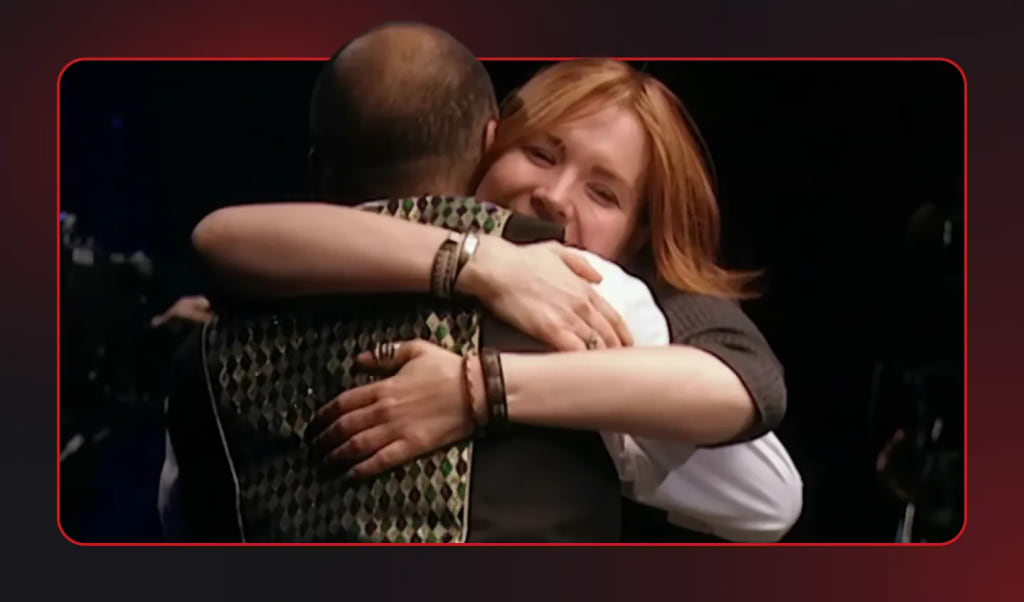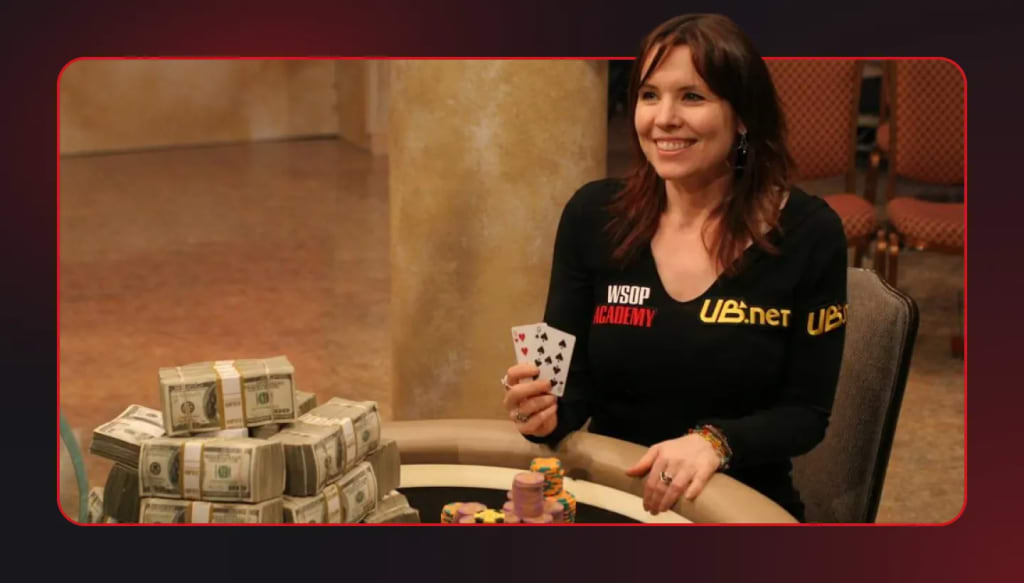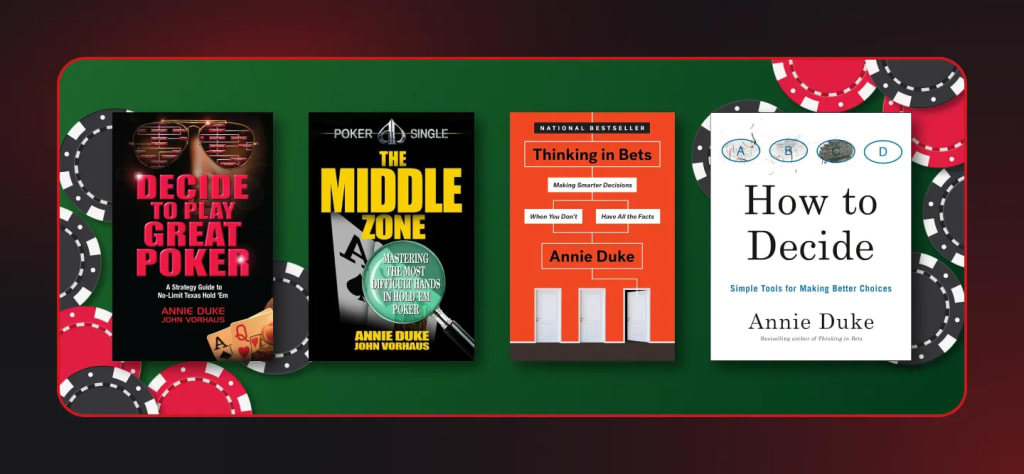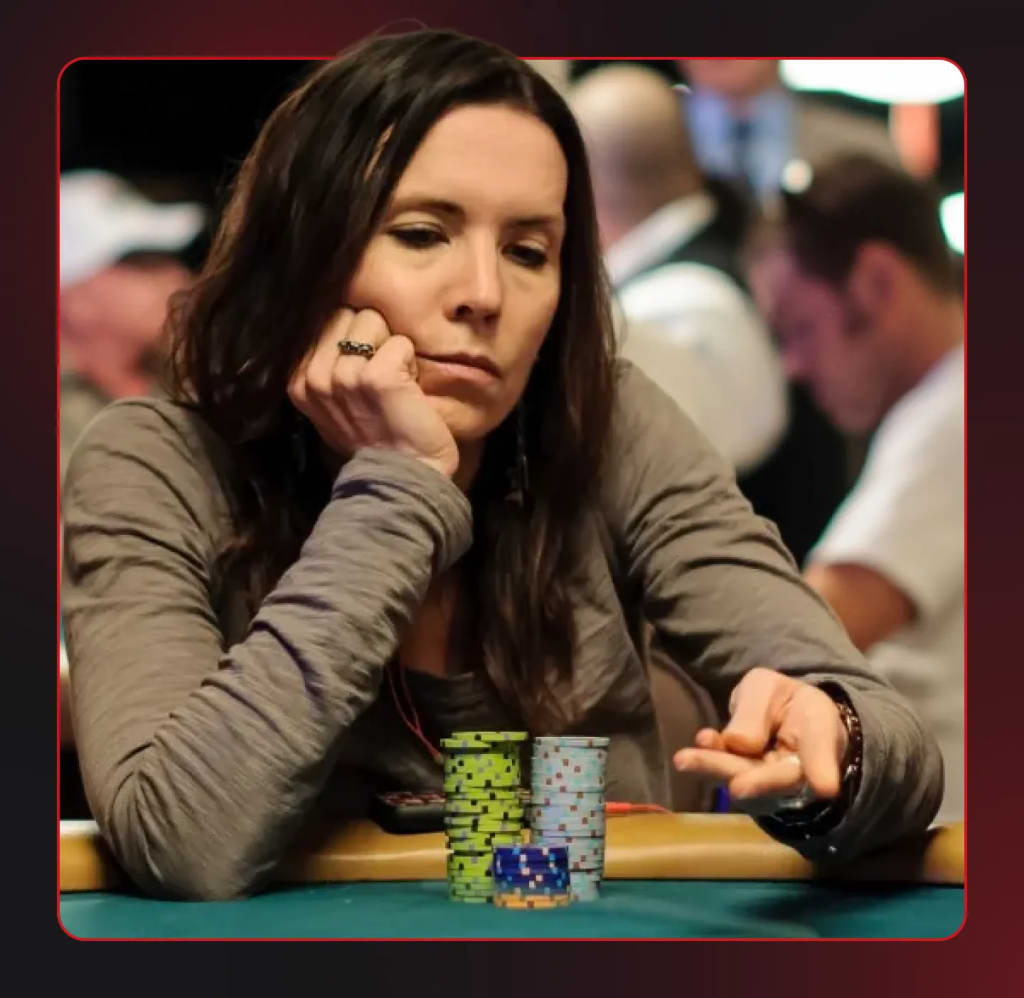Geek Women Legends at the Poker Table – Part 2: Annie Duke

The “Geek Women Legends at the Poker Table” series aims to showcase women who embody both geek values and poker excellence. This time, we focus on Annie Duke, a living example of the intersection between psychological science and competitive poker. The central question: how does one go from being a student of cognitive science to competing at the highest stakes in poker while also teaching others “how to make the best decision”?
Intellectual Roots and the Early Academic Biography
Annie Duke was born on September 13, 1965, in Concord, New Hampshire. She grew up in an intellectual family environment, both of her parents were teachers. Her brother, Howard, also became a professional poker player, and the mix of sibling rivalry and mutual support would remain a defining factor in their careers.
From a young age, Annie was fascinated by language and the workings of the mind. She studied English and psychology at Columbia University, then received a National Science Foundation fellowship to pursue doctoral studies in cognitive psychology at the University of Pennsylvania. Though she was close to completing her dissertation, she left academia for financial and family reasons. Still, her analytical, science-based background would later play a key role in the way she connected poker strategy with decision-making theory.
How She Entered the Male-Dominated Poker World
Although not raised as a professional poker player, Annie grew up with card games in the household. Her first concrete steps toward Texas Hold’em came around age 22, when she visited Las Vegas with her brother. Howard’s support was crucial: he provided financial backing, poker books, and advice, helping her enter the competitive scene.
In 1994, she began competing in the World Series of Poker (WSOP) events and quickly earned about $70,000 in prize money within her first months, a sign that poker could become more than a sideline. Early cashes were a big deal, especially for a newcomer.

This was much like a board game scenario: when a beginner joins the table, veterans assume the newcomer is harmless. But if the newcomer calculates probabilities effectively (e.g., which moves are most likely to succeed) and negotiates well, underestimation becomes an advantage. Annie Duke mastered this dynamic, turning stereotypes to her benefit.
She also faced the challenge of entering a male-dominated environment. Many men underestimated female players, but Annie Duke soon proved she wasn’t just a “female poker player” at the table, she was a serious, tough-minded competitor.
WSOP Results and the Bracelet
The WSOP is the most prestigious poker series, and winning a bracelet there is a major milestone. Annie Duke’s career highlights include:
- 2000: Finished 10th in the WSOP Main Event, while nearly nine months pregnant. At the time, this was among the best female results ever in the Main Event.
- 2004: Won her first WSOP bracelet in Omaha Hi-Lo Split. That same year, she also won the WSOP Tournament of Champions (an invitation-only event featuring top players), earning a $2 million prize.
- 2010: Captured the NBC National Heads-Up Poker Championship, becoming the first woman ever to win the title in this prestigious one-on-one format.
- Career totals: Over $4.27 million in live tournament winnings.
Her success was built not on flashy “big scores” but on consistent, sound decisions. Like in the board game Terraforming Mars, where victory depends on a steady stream of well-timed actions rather than one spectacular move, Annie focused on long-term expected value.

Her strategy went beyond simple hand evaluation. She integrated geek-inspired tools from psychology, behavioural observation, and decision theory to outthink her opponents and refine her long-term edge.
The Science of Decision-Making: Thinking in Bets, and Life Lessons
As her poker reputation grew, Annie increasingly built her brand around decision science, merging psychology with competitive gaming.
Key works include:
- Decide to Play Great Poker (with John Vorhaus) – practical no-limit hold’em strategy.
- The Middle Zone – handling tricky “in-between” hands.
- Thinking in Bets: Making Smarter Decisions When You Don’t Have All the Facts – a crossover book applying poker-based decision-making to everyday life and business.
- How to Decide: Simple Tools for Making Better Choices – practical frameworks for improving decision skills.
Her central thesis: poker is a real-world model of uncertainty, risk, and incomplete information. Learning to weigh probabilities and outcomes at the table can sharpen decision-making everywhere, in business, education, and daily life.

She became a sought-after keynote speaker, workshop leader, and corporate consultant, working with around 500 companies, startups, and educational institutions to help organisations foster stronger decision-making cultures.
Ultimate Bet and the Epic Poker League Collapse
Annie’s reputation has also been shaped by her proximity to some of poker’s most controversial chapters. Her brother, Howard Lederer, became infamous for his role in the Full Tilt Poker scandal, while Annie had earlier served as a consultant for Ultimate Bet between 2001 and 2004. Although she consistently denied any knowledge of the cheating scandals that later engulfed Ultimate Bet, the association tied her name to an era of mistrust in online poker.
In 2011, Annie sought to innovate the live poker scene by co-founding the Epic Poker League with Howard and former WSOP commissioner Jeffrey Pollack (a former World Series of Poker commissioner and seasoned sports executive). Marketed as a television-friendly, invitation-only series for elite players, it generated excitement but quickly faltered. By February 2012, the league filed for bankruptcy, failing to deliver promised prize pools, including a much-publicized freeroll. Many players held Annie partly responsible, and the collapse dealt a serious blow to her credibility, underscoring that even decision-making experts face risks when theory meets business reality.
A lot of changes have happened in the industry since then. Licensing and legislation create the transparency needed for players to regain trust. We recommend playing on trustworthy sites such as WPTGlobal or CoinPoker.
Media Image, Mistakes, and the Thinking in Bets Philosophy
Some critics argue that Annie Duke has always been strategic, not only at the poker table but also in how she manages her public image. Profiles such as the one published in The New Yorker have highlighted her careful control over what parts of her life she chooses to share, sometimes suggesting that her confidence borders on calculated self-promotion.
Yet Annie herself does not shy away from admitting imperfections. She frequently reminds audiences that the quality of a decision should not be judged solely by its outcome, since poker (and life) is shaped by uncertainty, luck, and variance. This is the essence of her Thinking in Bets philosophy: a good process can still produce a bad result, and a bad process may sometimes get rewarded.

By emphasizing the distinction between decision quality and outcome, Annie challenges the natural human bias of “resulting,” encouraging people to evaluate choices more rationally.
A Geek Woman Role Model
Annie Duke’s influence extends beyond her personal poker record. She bridged the gap between intellectual inquiry and competitive gaming, leaving behind a message: decision-making is not a mystical talent, but a teachable skill.
Her geek legacy includes:
- Role model for women: Proof that female poker players can excel not just in “ladies’ events” but at the highest levels of open competition.
- Science and Poker: Demonstrating poker as a laboratory for decision theory with real-life applications.
- Academic credibility: Even without completing her PhD, her cognitive science training permeates her approach.
- Critical reflection: She openly acknowledges controversy and failure, treating them as learning moments consistent with her betting mindset.
- Broader impact: From schools to Fortune 500 companies, her lectures and coaching promote better decision cultures across domains.
Ultimately, Annie Duke stands as proof that geek knowledge and the gaming world are not only compatible but mutually reinforcing. That may be her true legacy: using games to become better at life.
Whether you are a recreational player or an aspiring poker pro, you can start to hone your skills – maybe a bit faster online than live – on our recommended poker sites. Find the best bonus codes for QQPoker , GGPoker , and WPT Global to get closer to reaching your poker dreams.


































